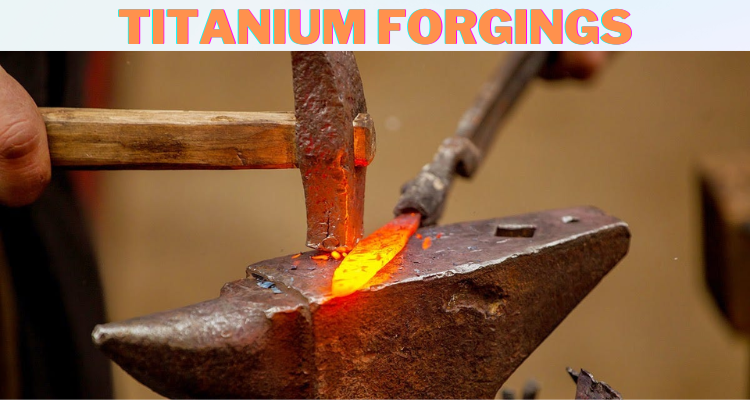In the dynamic world of aerospace engineering, where innovation and performance are paramount, Titanium Forgings stand as a cornerstone of progress. With their exceptional strength, lightweight design, and unmatched durability, titanium components play a pivotal role in pushing the boundaries of aerospace technology. In this blog, we’ll explore the fascinating realm of titanium forgings in aerospace applications, uncovering their significance, applications, and contributions to the future of flight.
The Lightweight Champion: Titanium in Aerospace
Before we delve into the specifics of titanium forgings, let’s take a moment to appreciate the remarkable properties of titanium that make it an ideal choice for aerospace applications:
- Exceptional Strength: Titanium boasts a remarkable strength-to-weight ratio, making it stronger than steel yet significantly lighter. This property enables aerospace engineers to design lightweight yet robust components that enhance the performance and efficiency of aircraft.
- Corrosion Resistance: Titanium exhibits exceptional resistance to corrosion, even in harsh environments such as saltwater, acidic solutions, and high temperatures. This corrosion resistance ensures the longevity and durability of titanium components in aerospace applications, reducing maintenance requirements and enhancing reliability.
- High Temperature Resistance: Titanium retains its strength and integrity at elevated temperatures, making it suitable for use in engine components, exhaust systems, and other critical parts subjected to extreme heat during flight operations.
Applications of Titanium Forgings in Aerospace
Titanium forgings find diverse applications across various aspects of aerospace engineering, including:
- Aircraft Structures: Titanium forgings are used to manufacture critical components of aircraft structures, such as fuselage frames, wing spars, and landing gear components. Their high strength, lightweight design, and corrosion resistance contribute to the overall performance, efficiency, and safety of aircraft.
- Engine Components: Titanium forgings play a crucial role in the fabrication of engine components, including compressor blades, turbine discs, and exhaust system parts. Their high temperature resistance, fatigue strength, and dimensional stability withstand the demanding conditions of jet engines, ensuring optimal performance and reliability.
- Spacecraft and Satellites: Titanium forgings are utilized in the construction of spacecraft, satellites, and launch vehicles for missions to outer space. Their lightweight design and durability make them ideal for reducing the overall mass of spacecraft, enhancing payload capacity, and ensuring mission success.
Advantages of Titanium Forgings in Aerospace
The utilization of titanium forgings offers several key advantages for aerospace applications:
- Weight Reduction: Titanium forgings enable aerospace engineers to design lightweight structures and components, reducing the overall weight of aircraft and spacecraft. This weight reduction translates into fuel savings, increased range, and improved operational efficiency for commercial and military aviation.
- Enhanced Performance: The exceptional strength, durability, and temperature resistance of titanium forgings contribute to enhanced performance and reliability in aerospace applications. Components made from titanium withstand the rigors of flight operations, including high speeds, turbulence, and thermal stresses, with minimal maintenance requirements.
- Fuel Efficiency: By reducing the weight of aircraft structures and engine components, titanium forgings contribute to improved fuel efficiency and reduced carbon emissions in aviation. This sustainability benefit aligns with global efforts to address climate change and reduce the environmental impact of air travel.
Conclusion: Shaping the Future of Flight with Titanium Forgings
In conclusion, titanium forgings play a vital role in advancing aerospace technology and shaping the future of flight. With their exceptional properties, including strength, lightweight design, and corrosion resistance, titanium components enable the development of high-performance aircraft, spacecraft, and propulsion systems. As aerospace engineers continue to push the boundaries of innovation, titanium forgings will remain at the forefront of aerospace advancements, driving progress, efficiency, and sustainability in aviation and beyond.



